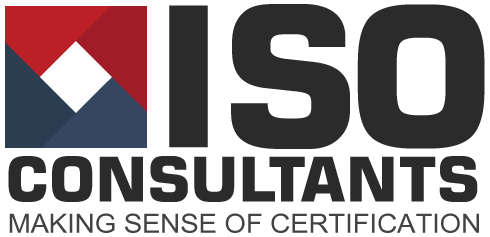The Small Business and Standards. An ISO Consultant Shares Some Truths.

Many small businesses consider use of an ISO Consultant to be a luxury for larger enterprises. Certification would take too long, cost too much and not really benefit them at all, apart from a certificate on the wall and a large lever-arch file.
Yet many of my customers as a UK-based ISO Consultant are smaller, rather than larger. And when they’ve achieved certification, they are pleasantly surprised how easy it was, how close they were to the requirements, and how it opens up new opportunities.
So, how might it benefit the SME?
Access to Bigger Opportunities and Customers. Possession of a standard such as ISO 9001,ISO 27001, etc, makes life very easy for procurement departments issuing tenders. Simply. It’s a case of have, or have not. In the former case, it immediately answers many of their questions about quality management and business administration. In the latter case, it makes their life even easier, as you will be rejected.
Recognition Among Peers. Your competitors and associates can see that you work literally “up to a standard”. You are a professional and diligent business, and have had an assessment to prove this, based on internationally-agreed criteria. It’s more than a certificate.
A Sign of Maturity for the Business. There are many small enterprises full of vigour, courage, and innovation that sadly fail due to their lack of foundations in quality management. Frequently, they are built on the initial vision and energy of one person, or team, who feed on their own success, yet fail to do things consistently well over a period of time. Certification says that your management team have stopped, thought and considered what they do, why they do it ,and how well. A mature, balanced business understands standards.
An Indication That Business Risks Are Being Addressed. Standards such as ISO 14001 and ISO 27001 not only address business processes, but also, as a consequence, consider legal liabilities. For example, the penalties for environmental offences are stringent and costly. Accreditation to ISO14001 means that key vulnerabilities are identified and managed. Applied correctly, compliance ensures that there will be no very nasty (and costly) surprises. A professional ISO Consultant can keep you out of court.
So, What Do You Need To Do?
Frequently, our industry over-complicates it’s own work. Actually, much of this is simply good business practice, documented, audited, reviewed, and, of course, implemented…
- Set a general policy and supporting objectives for what your approval should deliver. Simply, “where do you want to go, and why”.
- Produce the necessary documented procedures. “This is how we all agree that we’re going to do it”
- Show that your adherence to these has been audited to confirm implementation, or “here’s the independent evidence from an outside approved body that we can and do carry out these things”
- Complete a management meeting to show that the performance of the system and whether objectives are being met. “are we where we originally wanted to be/ is this working for us in reality?”
“This sounds expensive.. “
Not really, considering the potential benefits. A company with a single location and less than thirty people should be able to get systems planned and written by an ISO consultant for ISO standards (ISO 9001, 14001, OHSAS 18001) for less than £5K and in some cases, less than £1K. Certification for three years could cost a further £2-4K.
And How Long Would it Take?
The whole process can be completed in less than three months.
I’ve seen many small businesses face this with a fair degree of reluctance, but quickly realise the benefits, not only in marketing and supplier status terms, but also in simply doing things better. Now compare and contrast the modest spend on recruitment of even semi-skilled staff, a marketing campaign of dubious benefit, a new company car, or some morbidly obese Koi Carp for the reception fish tank. Not many other investments will give access to bigger opportunities as well as streamline your business processes.
In short, for businesses large, and particularly small, it’s certainly worth it.
Written by Colin Brown of ISO Consultants


0 Comments